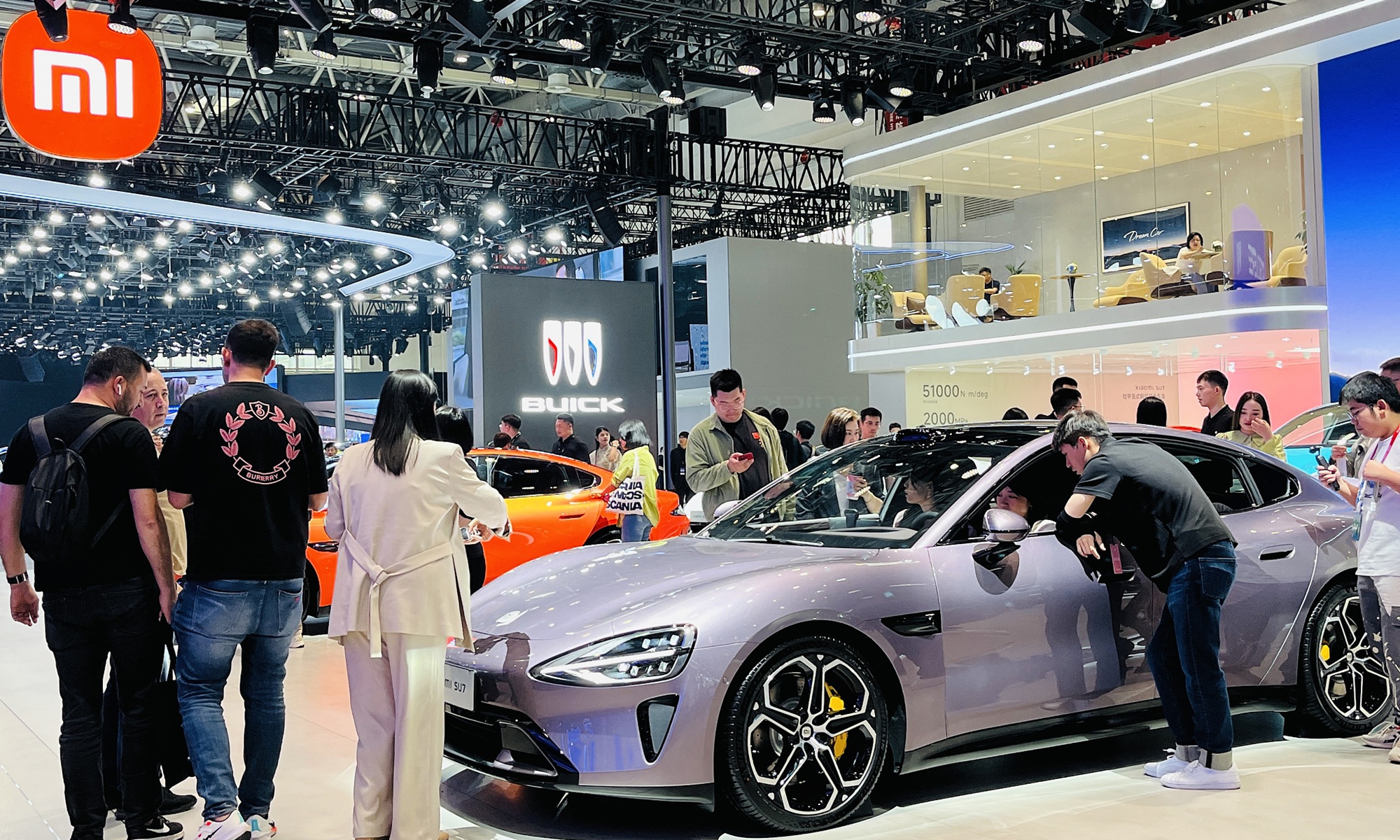
Photo: CFP
China introduced a new policy on Friday aimed at encouraging trade-ins of more polluting vehicles for new energy vehicles (NEVs) or fuel-efficient cars. This initiative, launched as part of an action plan to foster large-scale equipment renewal and trading-in of consumer goods, is designed to stimulate domestic consumption while advancing the country's green transition.
Under the new policy, which will remain effective until December 31, 2024, China will provide a one-time fixed subsidy to personal consumers who scrap vehicles that meet emission standards of China III or below, or those NEVs registered before April 30, 2018. The subsidy amounts to 10,000 yuan ($1,378) for those who replace their old cars with NEVs, and 7,000 yuan for those opting for new vehicles with a displacement of 2.0 liters or less, according to the Ministry of Commerce.
Experts noted that the plan will further the green transformation of China's passenger car market, promoting the development of China's NEV industry.
By offering scrap subsidies, the policy directly leads to the removal of older, high-emission vehicles from the market, which will significantly reduce environmental pollution. Wang Peng, an associate research fellow at the Beijing Academy of Social Sciences, told the Global Times on Friday, "The provision of scrap subsidies not only minimizes the economic loss for car owners but also increases their motivations to scrap old vehicles."
The gradual phasing out of high-emission vehicles and the widespread adoption of NEVs and energy-saving cars are expected to substantially raise the industry's emission standards, aiding in the achievement of China's environmental and carbon neutrality goals, added Wang.
China's emerging NEV industry plays a crucial role in the country's green shift. According to data released by the National Big Data Alliance of New Energy Vehicles on Wednesday, China's new energy vehicles achieved a record carbon emission reduction of over 9 million tons in March 2024, an increase of 43.8 percent year-on-year. From January to March 2024, the cumulative carbon emission reduction reached 25.17 million tons, marking a 52 percent increase compared to the previous year.
Moreover, amid accusations of overcapacity in China's new energy sectors by the US and some Western countries, experts argue that demanding China to play a larger role in climate change mitigation while criticizing its new energy industry is contradictory.
Climate change is a global issue requiring a collaborative effort. Chinese new energy industries are important for global action to reduce carbon emissions and tackle climate change. The Western hype on Chinese overcapacity in the new energy industry is more of an issue with their own political and economic interests, Wang stated.
Recently, the US and some Western countries have frequently hyped the narrative of so-called "overcapacity" in China's emerging sectors like NEVs and photovoltaics. While propagating this narrative, these nations also seek to smear and suppress Chinese technological advancements in these sectors, as noted by Huang Chengliang, a research fellow at the Research Institute for Eco-civilization, Chinese Academy of Social Sciences.
It is contradictory for Europe to demand China's contribution to climate change mitigation while simultaneously suppressing its new energy industry, said Wang Wenbin, a spokesperson of China's Foreign Ministry, on Friday, responding to a call from Annalena Baerbock, the German Foreign Minister, for China to contribute more to helping developing countries in tackling climate change.
Both China and Europe have vast potential for cooperation in new energy sectors, bringing mutual benefits to both the regions and the world, said Wang Wenbin.
